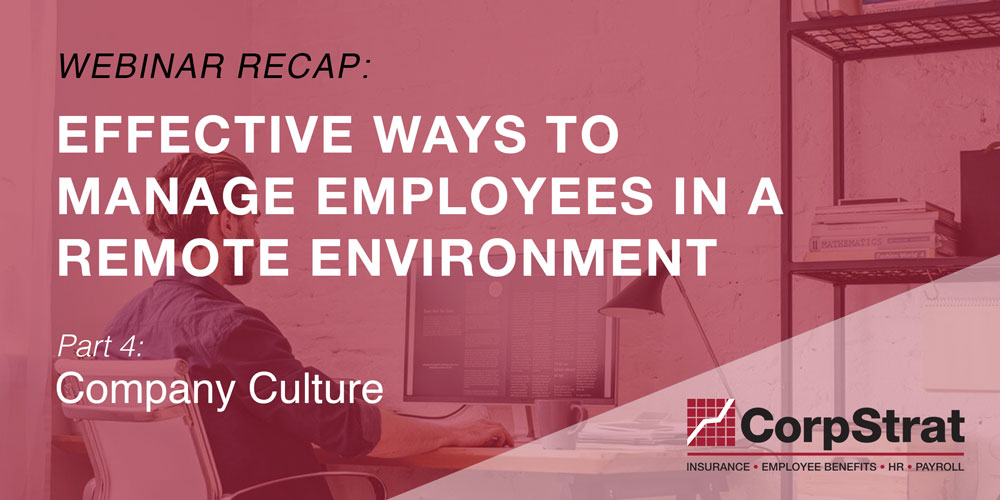
In order to create and maintain great company culture, employers are focused on ensuring their staff is motivated, team-oriented, and happy to stay with the company for the long haul. A mere six months ago, this meant company culture was all about happy hours, off-site team outings, and in-office communication and rapport. Essentially, creating ways for employees to interact with one another in positive ways, both within and outside of a work context. Cut to today: employees are no longer in shared spaces, teams can’t gather for meetings or activities, and all communication occurs virtually. Read on as we discuss how to maintain company culture when the workplace landscape has transformed so drastically.
The Danger
Zoom meeting fatigue. Lowered productivity. Ineffective communication. Unmotivated team members. These are all the dangers that occur when teams go remote. Underlying all these symptoms is the larger problem: company culture may be at risk of dying. As teams around the world are planning to stay remote for the foreseeable future, the question on everyone’s mind is: how can you maintain company culture in a remote environment?
How to Avoid
Everything we’ve mentioned so far may sound dire, but we promise there are ways to adapt your company culture so it can thrive even in a remote environment. Some of these tweaks may not alter things overnight, we all have to work together to gradually adapt to our changing world. However, our aim is to help you develop a mindset so you can find creative solutions to kickstart your company culture in these uncertain times.
Our first suggestion is to have meetings with meaning. It makes sense why many people find giant, 20+ person Zoom meetings exhausting—it’s hard to focus, they have to constantly fight to be heard, and technical errors can make meetings run long. Our solution is to get creative, perhaps you can break your team into smaller pods. Then you can keep larger team meetings succinct and smaller pods can break out into separate meetings in which they can feel seen and heard and be given clear instructions. This way, employees can feel more comfortable asking questions and continue building rapport.
Second, never underestimate the power of employee feedback. We know employers are doing everything in their power to maintain culture but blindspots occur despite the best intentions. It may be scary but don’t hesitate to ask your employees about what’s working and what’s not. Their honest feedback can illuminate seemingly small issues, which you can address before they become problematic.
Opportunity
Just because you’re not in the office anymore, doesn’t mean the old office shenanigans can’t still be in play. Some of the goofy and fun things you used to do can be translated into a virtual environment. For example, if you used to buy the employee of the month lunch, send them a meal via a delivery service like GrubHub or Postmates. If managers used to grab coffee with their team members, give them a monthly coffee stipend from Starbucks that they can use to send drinks to their team. When we’re all apart, small acts of care can go a long way. Also, keep having fun! During team meetings, play a game like “Two Truths and a Lie” so you can continue getting to know each other and not have every interaction be solely about work.
Tip
Have fun with it and be easy on yourself. We all have enough going on, especially right now. Bring some good positive energy to the group and take care of your employees. In turn, you’ll continue to have a motivated, hard-working team that enjoys working with one another.
–
See how CorpStrat can help you transform your Company Culture. Contact us at marketing@www.corpstrat.com.
 You’re hiring! The exciting process of adding someone new to your team is in full force except, as the days pass, you notice the right talent just isn’t biting.
You’re hiring! The exciting process of adding someone new to your team is in full force except, as the days pass, you notice the right talent just isn’t biting.

